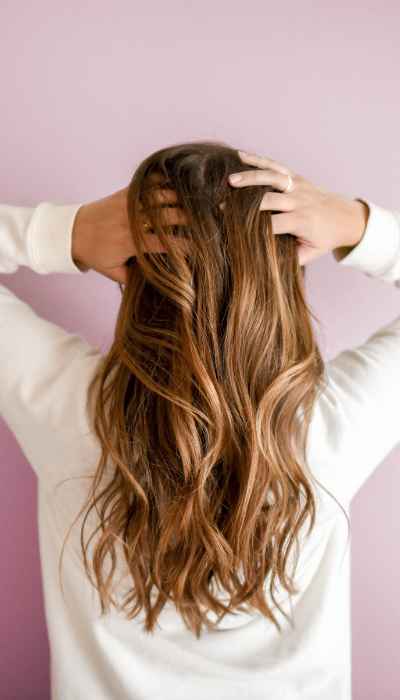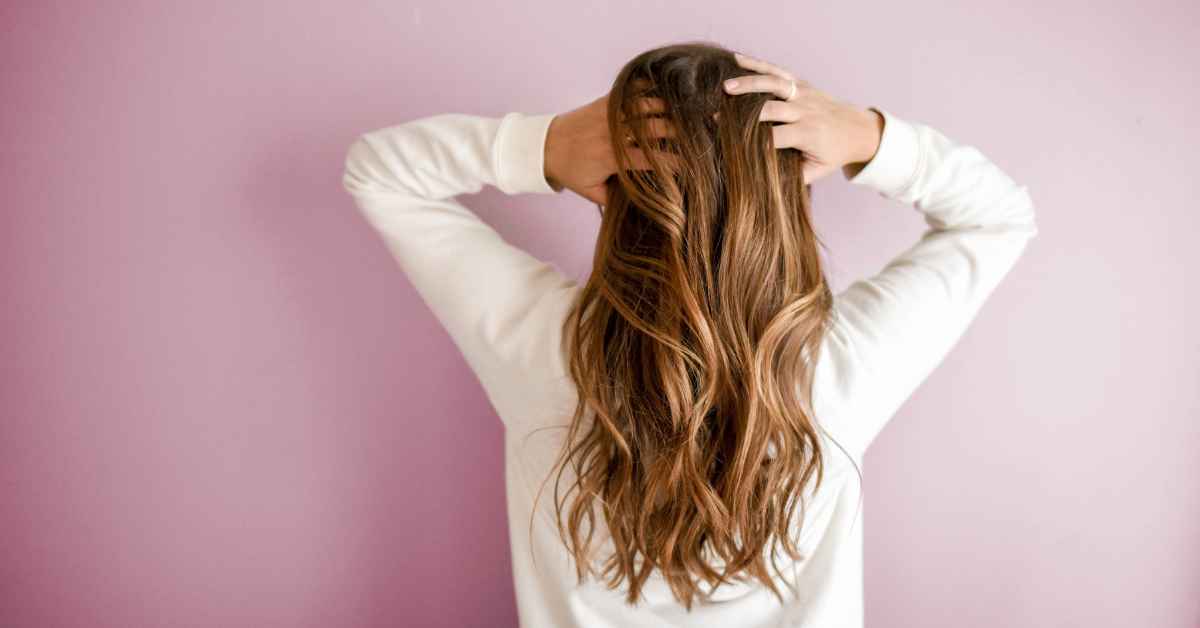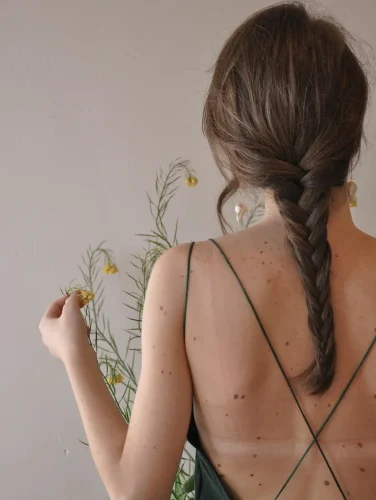Last Updated on February 5, 2026

Hey, doll! So what are your thoughts on rice? Specifically, rice water? No worries if you’re low carbing it, this rice is not meant to be consumed but for something else entirely. What for, you might you ask? Well, for your hair. Trust us, we were just as surprised as you about using rice water for hair. So what are the supposed benefits of using rice water for your hair?
Well, proponents argue that rice water can:
- Detangle the hair.
- Makes hair smoother.
- Increase shine.
- Make hair stronger.
- Help hair grow long.
- Remove dandruff.
- Calm irritation.
A study in 2002 published in the National Library of Medicine found that the leftover starch of rice water improved the damaged skin of people who had irritation from the use of sodium lauryl sulfates and/or dermatitis. In case you weren’t aware, sodium laurel sulfates are what make shampoo foam and can be extremely abrasive.
This can be found in laundry detergents and babe, you would never wash your hair with laundry detergent. However, maybe you didn’t know that some of your shampoos were super damaging, so then rice water would help with some irritation and the gunk that weighs your hair down. Perhaps the best candidates for this method are people with curly hair. Curly hair often has a harder time maintaining its bounciness because of the wrong shampoos being used, hair dyes, or an excess of products. In general, the rule of thumb is to not wash yours every day.
Does Using Rice Water for Hair Actually Work?
So the age old question of any new trend is, does it work? Well, let’s start with why people would even think to use rice water in the first place. Rice water is rich in Vitamins B and C along with trace elements of amino acids, potassium, iodine, magnesium, zinc, selenium, manganese, and a lot of fiber.
The composition of rice water also has many antioxidant properties that can remove the buildup that is common in people living in polluted areas who use a plethora of hair products. One caveat with the proteins found in rice water is you must hydrate after using this concoction. If you are someone who is constantly using protein-rich shampoos, then you are overly drying out your hair, which ironically can make it brittle. As with anything in life, balance is important. Hydration is key when using these methods, so make sure you reevaluate your hair care products if necessary. If you keep using wonky hair products, then using rice water is like putting a band-aid over a gash that needs stitches.
Rice Water History
If you’re like us, you may be curious as to how rice water became a thing. Well, besides social media making it a thing, rice water has some interesting history. One of the first rules of cooking rice is to rinse it off. Rinsing off your rice in water not only helps with taste but also removes any lingering pollutants on the rice. Using rice water dates back to the Heian Period in Japan. The usually discarded rice water was known to nourish the hair and scalp.
Known as Yu‐Su‐Ru, the rice water rinse was originally utilized by ladies of the court in Japan and was believed to have contributed to their floor-length hair. Now maybe floor-length hair is not your jam, but it’s no secret the beautiful hair of Japanese royalty is admired by many.
However, experts disagree on what rice water can actually nourish. More research beyond anecdotes is needed to establish if rice water aids in a healthy scalp, healthy hair, or both. So now that you have your background, let’s discuss the three ways you can make your own rice water: soaked, boiled, and fermented. Below, we’ll break down how to make each one.
Soaked Rice Water
- Take 1 cup of uncooked rice.
- Rinse it thoroughly.
- Add 2-3 glasses of purified or spring water.
- Leave the rice water for 30 minutes untouched.
- Strain the rice water into a clean bowl.
Boiled Rice Water
- Take ½ cup of rice.
- Add 1 glass of purified or spring water.
- Cook the rice in boiling water.
- Strain the rice water into a clean bowl before use.
This is a concentrated liquid that you can dilute before rinsing the hair. The concentration of dilution depends on the hair length and greasiness. Usually, it’s 1:10 ratio. The oilier the hair is, the lower the concentration should be.
Fermented Rice Water
- Take 2 cups of rice.
- Add 2 times more purified or spring water to it.
- Leave the rice to soak for 20-30 minutes.
- Pour the water into a glass bottle, seal it, and leave in a dark place at room temperature for 2 days.
- When a sour smell appears, stop fermentation and put it in a fridge to preserve all the beneficial properties obtained during fermentation.
- Fermentation reduces the pH level of rice water to the pH level of the hair. A proper pH is said to help with nourishing the scalp without overly stripping the hair of its natural oils.
You can also use diluted rice water as a conditioner. Apply it to wet clean hair, massage the scalp slightly, and rinse after 5-10 minutes. For additional nourishment, you can add a few drops of essential oil, such as rosemary, lavender, or geranium.
So now you have the three solid methods of actually creating your rice water and personally, the fermented one can be a bit intense for people, so we highly recommend the boiled and soaked methods for your first go. As of now, there are no known risks of using rice water, but if your scalp is overly dry, you may only want to try this method only two times a week. In addition, consider using an extra conditioner if your scalp gets too dry.
Ok, so now you have your preferred rice water preparation, so go ahead and put it on your scalp and then make sure to rinse it out.
To Sum Up
You may be wondering how long can you use rice water for hair. Well, the easy answer is you can use it indefinitely as long as you don’t use it over twice a week. It’s also important to note that whichever method you decide for making rice water, it only keeps about 4 to 5 days. Also, remember that rice water gets stronger as it sits, so you will want to dilute your solution the longer it sits out.
Personally, we highly recommend just making a batch you can use right away to avoid dealing with storage. Also, rice water is not to be left in your hair longer than 15 minutes. The major benefits of rice water really only occur in those 15 minutes, so rinse it out and then hydrate your hair with a nice hair mask. Rice water is not a substitute for shampoo and conditioner.
Now we haven’t mentioned this yet, but no, microwaveable rice cannot be used for this fun concoction, only the uncooked rice that you find in bags.
Prime Day Deals 2025: Best Beauty, Tech & Home Discounts
Get ready, because Prime Day…
Mullet Haircut for Girls | 2026
Easy hairstyles are trending more…
Pixie Cut Hairstyle | 2026
Easy hairstyles like the pixie…
30 Quick and Easy Hairstyles for Women
Quick and easy hairstyles for…
How long do you leave rice water in your hair?
Apply rice water onto the hair by pouring it gently. Massage the rice water into the hair and scalp. Let it sit for a maximum of 20 minutes. Rinse the hair thoroughly using warm tap water.
How should I use rice water for hair growth?
Generously spray rice water onto your hair, ensuring even coverage on the scalp and throughout the strands, combing it through for thorough distribution. Allow it to remain on your hair for approximately 20 minutes, similar to a hair mask. Rinse your hair meticulously to remove the rice water completely.
Does rice water work for hair growth?
The presence of amino acids in rice water contributes to hair regeneration, while the addition of vitamins B, C, and E further stimulates hair growth.
Meet Kourtney, a writer specializing in sex and relationships. Known for her honest and insightful approach, she explores themes of intimacy and personal growth. Her work combines personal anecdotes, expert opinions, and practical advice, helping readers navigate the complexities of modern relationships and embrace their desires. Kourtney's writing serves as a guide for those seeking authentic and fulfilling connections.
- Kourtney Anderson
- Kourtney Anderson






